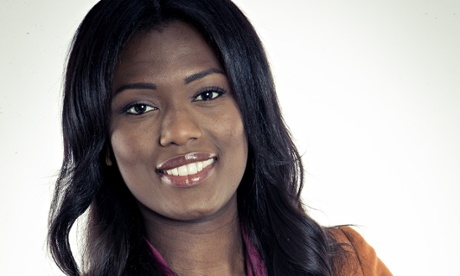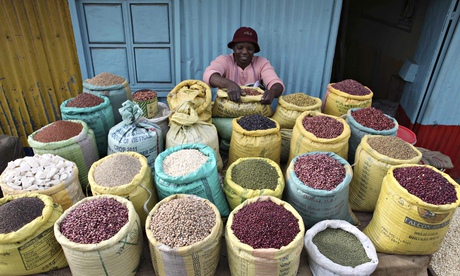Economic Empowerment
Source: The Guardian
Economically empowering women benefits community as businesswomen reinvest profits in social goods, says trade head
Elevating the economic role of women through technical support and improved access to financial services will reap greater social benefits than giving funds to men, the head of a global trade body has said.
International Trade Centre (ITC) executive director Arancha González was in Rwanda this month to launch a database of government procurement contracts (pdf) aimed at improving women's access to new business opportunities.
"What we know is that women entrepreneurs reinvest 90% of their revenues into the community," González said, listing education, nutrition, household expenditure, and caring for children and elderly people as social services that women buy with profits.
If governments strove to give women a greater share of the $15tn public procurement industry, economic growth would be more evenly distributed in developing countries, González said.
Governments award procurement contracts for goods and services to a range of businesses. These contracts can comprise "everything from office supplies to jet fighters to consultants", according to the International Institute for Sustainable Development.
"In some places women are not part of the economy; they are considered to be a non asset of the economy," González said. "It's almost like you have a plane with two engines but you only fly with one engine. You need to have both engines running if you want to generate the maximum amount of growth.
"The most interesting thing about women entrepreneurs is not only that they are an amazing engine for economic growth, but they are an amazing engine for equitably distributing the growth – and it's this second part that we should care about, as we have learned from the work that Thomas Piketty has been doing. There is a huge issue of inequality."
A new generation of female African entrepreneurs is beginning to spring up across the continent, but businesswomen still face challenges accessing finance and other support. Businesses owned by women receive only 1% of worldwide government procurement contracts, which account for 10-15% of global GDP, according to the ITC.
 Madjissem Beringaye believes young entrepreneurs can boost west African economies. Photograph: theguardian.com
Madjissem Beringaye believes young entrepreneurs can boost west African economies. Photograph: theguardian.com
After starting a communications firm two years ago, Chadian-French businesswoman Madjissem Beringaye now wants to train 100 young entrepreneurs a year, helping them to draft business plans, allocate funds and form partnerships in west Africa. "French companies do not trust young entrepreneurs like me," Beringaye said. University graduates are already coming to her with infrastructure projects.
Development aid granted to the ITC has enabled entrepreneurs to access new financial tools. But González said partnerships with the private sector are essential for growth. "A lot of what we do is build the capacity of small and medium-sized enterprises with aid," she said. "But these are small- and medium-sized enterprises the market is not taking care of – the market is not helping them label their products, package their products, understand how to do introduction techniques, understand where they've got a value to add.
"I have recently visited a country in sub-Saharan Africa that is the same size as France with amazingly fertile land, lots of water and only 15 tractors. The market is not taking care of that country."
Many African governments have shifted their economic agendas to focus on promoting the role of female entrepreneurs, González said. "The first lady of Ethiopia [Roman Tesfaye] is championing women's economic empowerment herself." Tesfaye has said the economic empowerment of women should be "the prime agenda in every development discourse" and supports the Centre for Accelerated Women's Economic Empowerment (CAWEE) in Addis Ababa.
 A woman prepares grains at her shop in Nairobi. Female entrepreneurs heavily reinvest in their communities.
A woman prepares grains at her shop in Nairobi. Female entrepreneurs heavily reinvest in their communities.
Photograph: Noor Khamis/Reuters
Developing countries must also diversify their exports and add value to products to bring about sustained economic growth, González said. "If you are a big agricultural country with huge agricultural productivity, fertile land and water, and you produce mangoes, you can export mangoes. But you can decide to transform these mangoes – you can export mango juices, candies, cakes or dried mangoes. The difference in price between mangoes and mango juice is very nice."
Despite the challenges, Beringaye remains optimistic about Africa's future. She plans to launch her training scheme next year with offices in Chad, Mali and Senegal. "Success is possible in Africa," she said. "Now is the time to build a future for ourselves on the continent."
